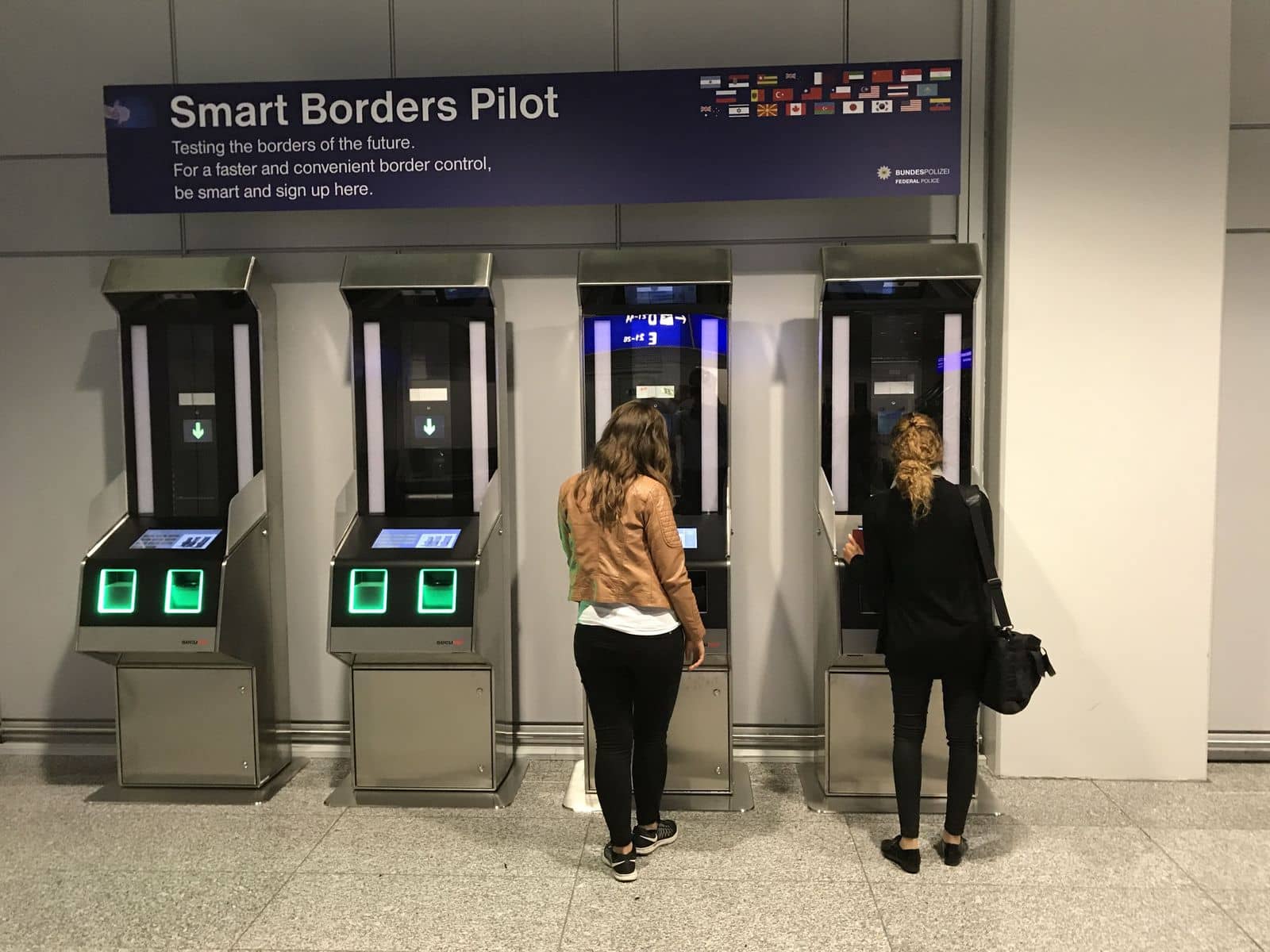Process acceleration at border control
In Terminal 2 of Frankfurt am Main Airport, third-country citizens now have a choice: they can either go directly to the border control desk and follow conventional entry procedures or use one of four self-service terminals (kiosk systems) currently installed at the border.
The terminals are secunet easykiosks, which the German Federal Police is piloting together with the German Federal Office for Information Security (BSI) and the Federal Office of Administration. The project had been implemented in the context of the European Commission’s Smart Borders initiative and aims to make external Schengen border control checks as secure and efficient as possible in the future. To this end, an intelligent, IT-based Entry and Exit System (EES) is in the pipeline for third-country nationals, as well as a European Travel Information and Authorisation System (ETIAS) for visa-exempt third-country citizens.
Germany’s first Smart Borders pilot project took place in 2015. At the time, the participating authorities discovered – as expected – that the planned EES processes would significantly increase the time needed for border control checks. At the same time, it was predicted that this negative effect could be counteracted or even entirely reversed with the help of so-called ‘process accelerators’ – i.e. partial automation – which could make sure that border control will remain fast, convenient and secure.

Shorter control times
This is the starting point of the current, second pilot project. With the secunet easykiosk, the German Federal Police is piloting an automated solution that allows airline passengers to complete document checks and have biometric data collected autonomously for identity checks. To this end, the easykiosk contains a passport reader, a fingerprint scanner, a facial recognition camera, an iris scanner and a touchscreen, which passengers can use to complete electronic entry interviews and will run them intuitively through the entire process. Once the data is collected, passengers go to the border control desk, where the border control staff will quickly check the data collected by the secunet easykiosk.
Bundesdruckerei GmbH extended its border control system (BCS) for the kiosk system’s central configuration and management. This means secunet and Bundesdruckerei GmbH are now building on their successful teamwork during the EasyPASS project, which involved installing secunet easykiosk systems at German airports.
The Smart Borders pilot project has not yet been fully evaluated, but the first positive trends are already clear. The most important finding shows that the automated pre-acquisition of data significantly reduces control times at the border control desk. It also helps to enhance the quality of manual border control checks, as officials no longer have to collect data, allowing them to concentrate on non-technical aspects, i.e. the actual semantic check of the travel process.
No more language barriers
So far, the pilot has shown that self-service kiosk systems are not only well-received by officials; travellers have also responded positively. Use of the machines appears to present no obstacles for travellers; the successful kiosk use rate – whereby the process was not ended before completion – was over 90% during both test phases, far exceeding all expectations.
One feature, which had been considered rather incidental before the project started, turned out to be genuinely useful during testing: the digital completion of entry interviews. Travellers can enter data in their own language, thus removing language barriers with border control officials, who were previously only able to navigate them with difficulty.
Due to the positive feedback received from the German Federal Police, the kiosk system will now be used for longer than expected.